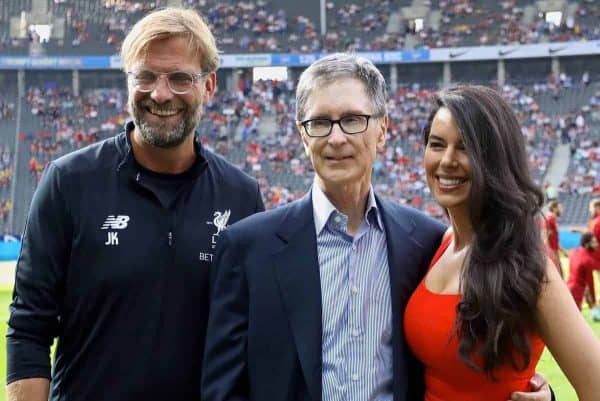Liverpool have been described as a “driving force” in the proposal of radical change to the setup of English football, including the change to a new 18-club Premier League.
The Telegraph‘s Sam Wallace revealed a world exclusive on Sunday that unveils a series of plans to overhaul the English football system and give further power to those at the top.
Liverpool and Man United are said to be driving the proposal, which has been labelled ‘Project Big Picture’, including the abolition of the League Cup and Community Shield, and a playoff tournament for promotion and relegation.
On the back of the COVID-19 pandemic and its impact on the finances of football, the plan would include a £250 million bailout fund for the Football League, along with ongoing payments to those below the Premier League.
Fenway Sports Group, Liverpool’s owners, have authored a document titled ‘Revitalisation’, with United, Man City, Arsenal, Chelsea and Tottenham all providing their backing.
It is unsurprising, given the proposal would give those at the very top of the game more power than ever, with only six votes from the nine longest-serving sides required for “amending rules and regulations, agreeing contracts, removal of the chief executive, and a wide-ranging veto including on club ownership.”

Wallace’s source is EFL chairman Rick Parry, formerly chief executive at Liverpool, who has held talks with John W Henry and Mike Gordon, along with United owners the Glazer family, and claims many of the 72 members of the Football League would back the changes.
Perhaps most interesting from a Premier League perspective is that ‘Project Big Picture’ would alter the top flight to an 18-club league.
Only two clubs would be automatically relegated to the Championship, with the 16th-placed side then entering a playoff tournament with those who finished third, fourth and fifth in the second tier.
The season would also begin later than usual in August, to ensure for more pre-season friendlies, including a lucrative Premier League tournament over the summer.
Clubs would also be able to loan out 15 players on a domestic level at any one time, along with up to four at any single club in England.
The benefits for those outside of the Premier League‘s nine-team stronghold, which currently also includes West Ham, Everton and Southampton, would largely come in terms of finances.

Along with the £250 million paid out to the Football League, £100 million would be given to the FA to aid, among other areas, non-league, women’s and grassroots football.
Further revenue would be fed into the lower leagues on a regular basis, and while there is certainly a virtue to the proposal, it cannot be ignored that this would come with ‘smaller’ clubs ceding more power to the ‘big six’.
Support for away fans would also be implemented, including subsidised travel as standard, while safe standing would be made a priority.
“Talks began in 2017 but have been accelerated since the coronavirus pandemic has thrust football into the grip of crisis with no fans in stadiums until March at the earliest,” Wallace writes.
“Liverpool and United are prepared for a fierce debate over their proposals but they want them implemented as soon as possible.”
Any writeup of Wallace’s report would not do it justice, and it is highly recommended that his piece in the Telegraph be read in full, along with Jeremy Wilson’s followup breaking down the key proposals.
















Fan Comments